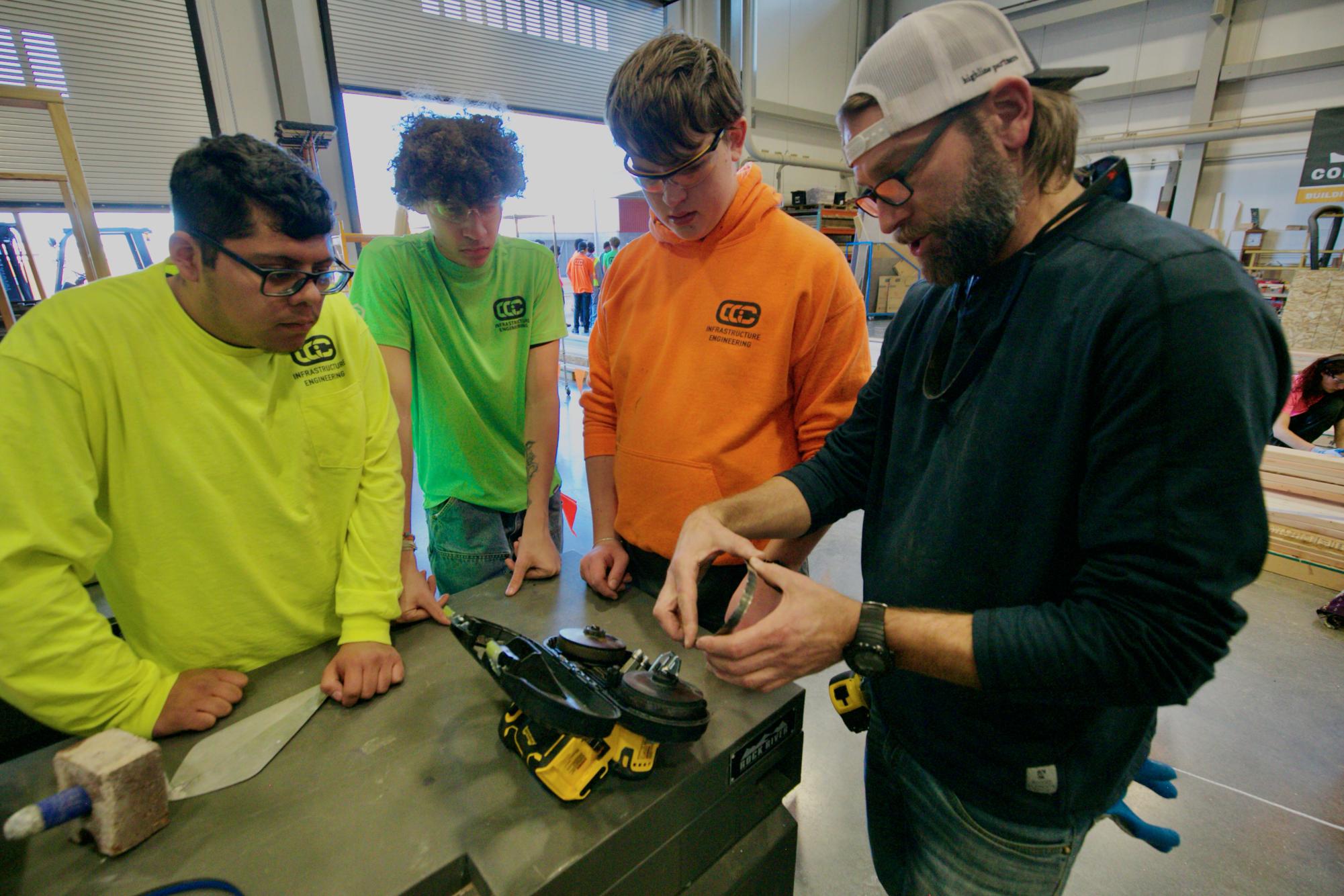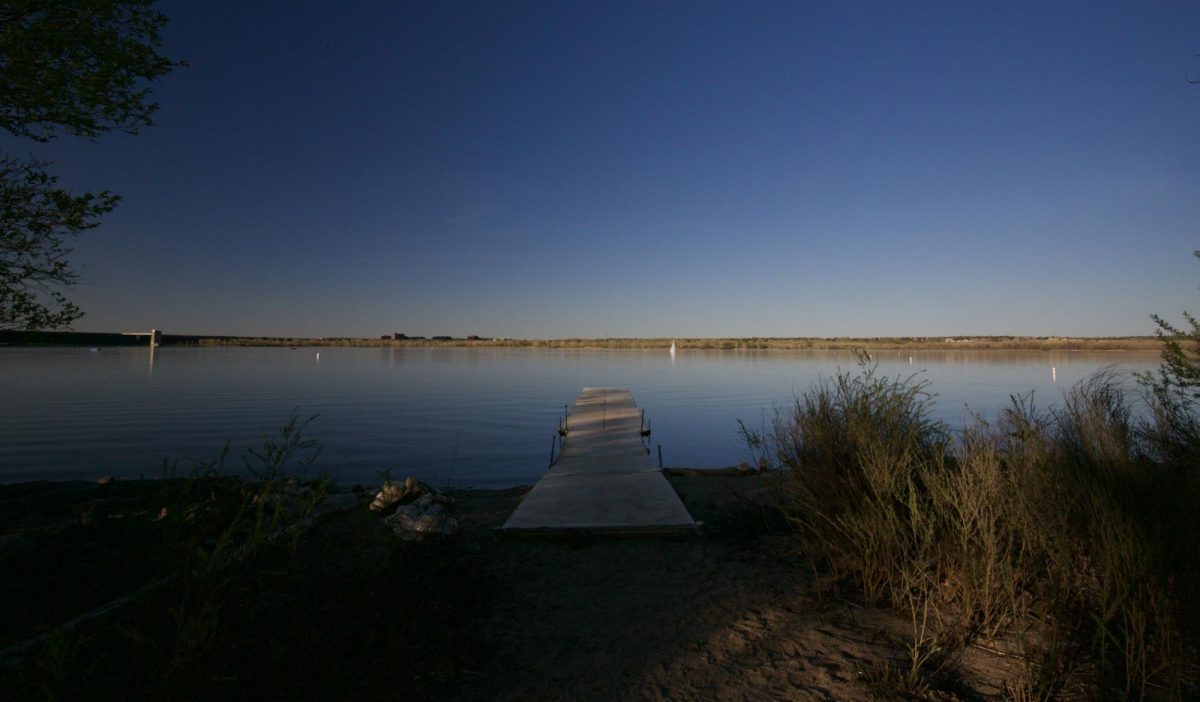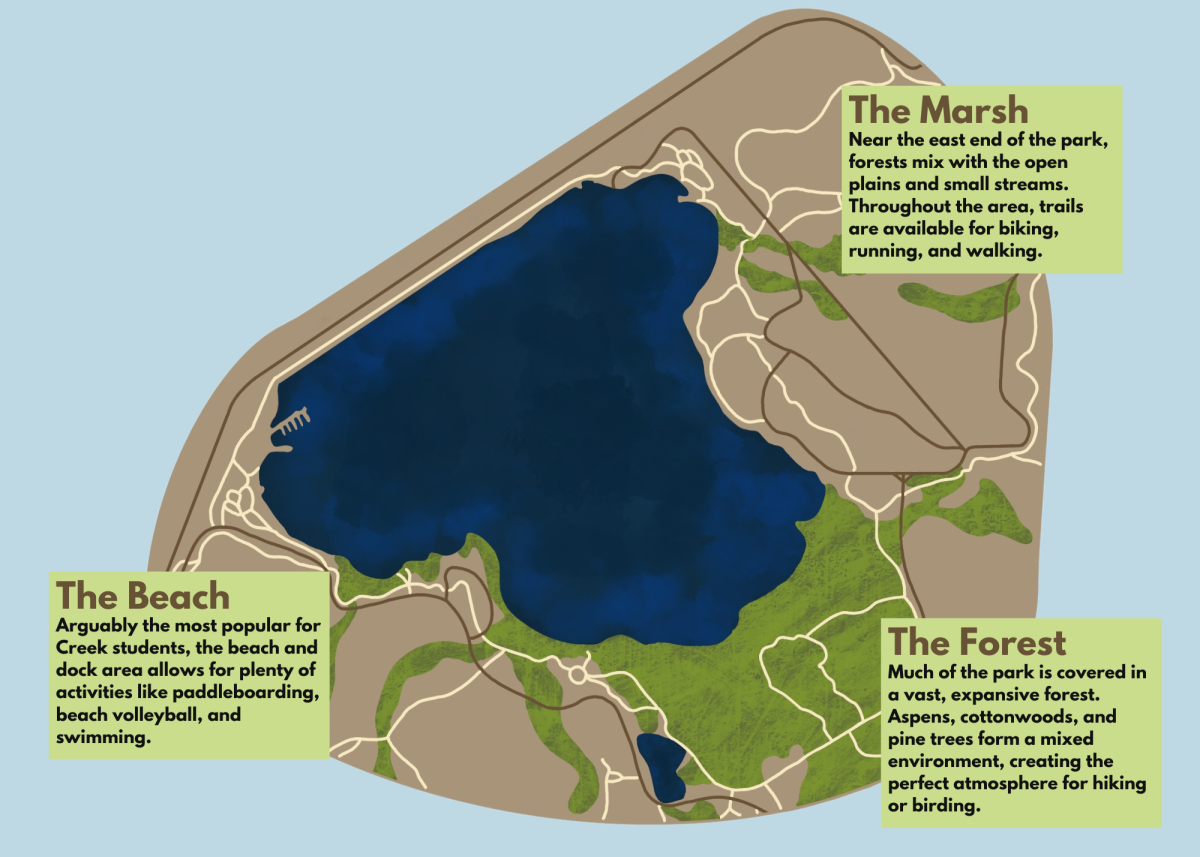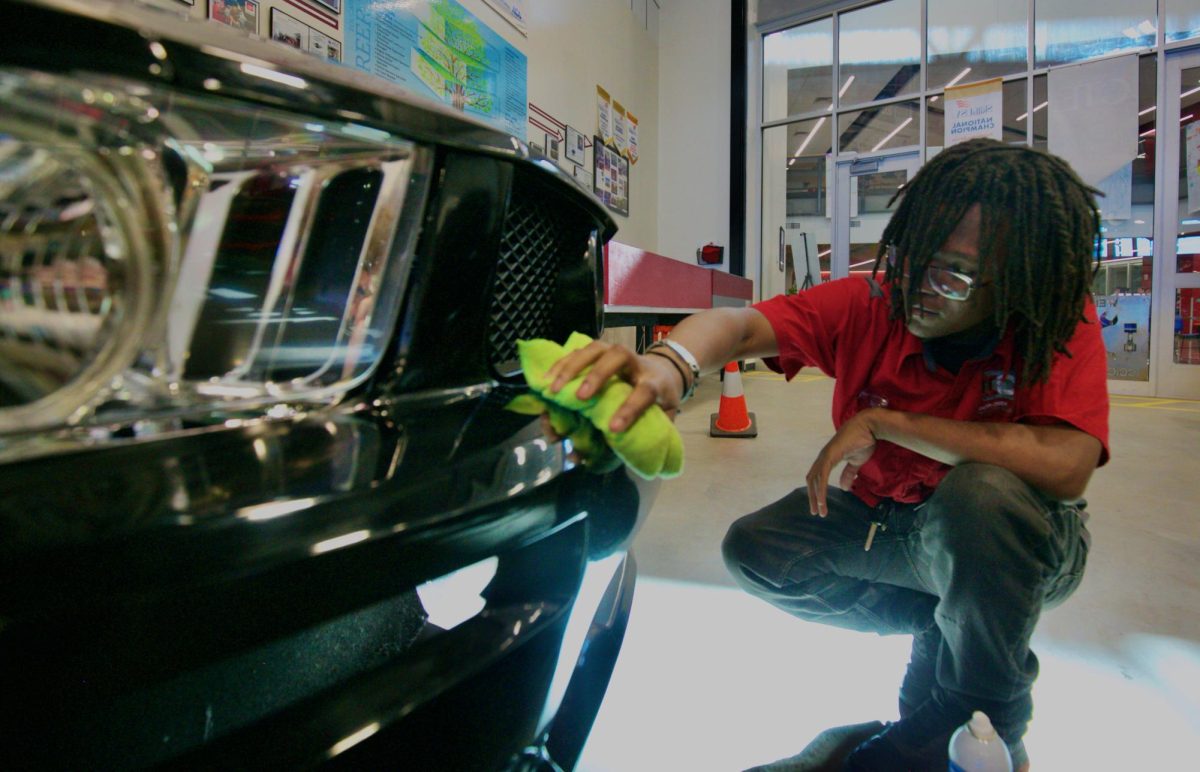Culinary Introduces Future Life Skills
Culinary Management, one course within the Hospitality pathway, offers studies in lodging and culinary arts, along with credentials and experience in food service and hospitality within the CCICafe, the facility’s own food counter, serving dishes made in the Prostart I-III classes.
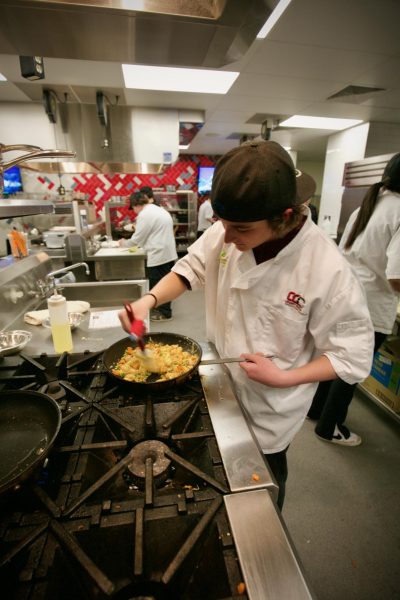
“It’s pretty cool that we come together and just make meals for each other every day,” Creek junior and Prostart I student Ivory Brown said. “The students are very fun to be around. They’re very open minded. They’re very creative in different ways.”
Brown said the class is helpful even for those who aren’t planning a future in the food industry. “I can definitely see cooking being in my future…as a hobby,” she said. “Because if I do want to live on my own, having a good cooking background will help me get through life.”
And even though many might choose it as a hobby over a career, Prostart I teacher Christina Runyan is happy to be the first teacher in that process.
“I love that I get to teach the intro class, because I feel like students are always learning something new and helping students figure out whether they want to do this for a career,” she said. “It’s a lot of fun and you get to eat every day and just learn all of the different cooking basics that you can use later in life.”
Infrastructure Provides Career Learning Opportunities
The Infrastructure Engineering program at CCIC supports students in exploring different areas of building trades by teaching them how to operate cranes and/or forklifts, pour concrete, and frame buildings, as well as skills they may need in the field. The program is split up into multiple classes; Construction 1 covers topics like structural framing, tools, applied math, blueprint reading, and industry safety.
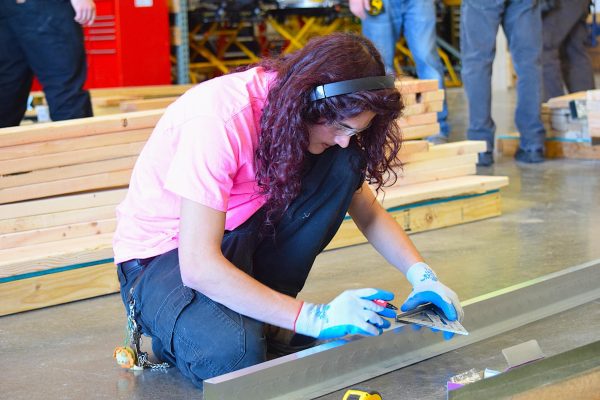
“There’s a lot I can take away from this class, aside from the actual work I learned skills like teamwork and general building skills,” Elevation senior Lev Kennedy said.
Construction 2 goes more in-depth, while also allowing students to work with Associated General Contractors of Denver, for a year-long home-build project. The students work to build a three bed, three bathroom house for Habitat for Humanity. After building the house, many students find that it gives them practical experience with carpentry, electrical, and plumbing.
“It’s so hands-on, and the teachers really show you the nitty gritty of things,” Kennedy said. “[The teachers] give us our tasks but they show you in-depth how it would work in the real world and real world applications.”

